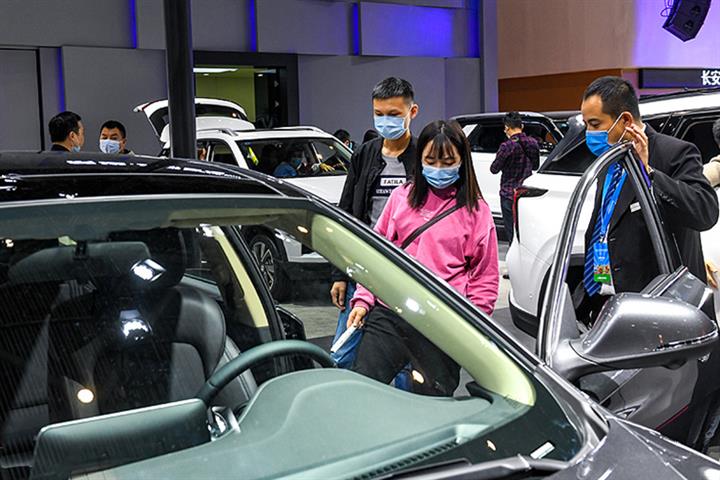 China’s Retail Car Sales to Fall 2% This Year Due to Covid-19, J.P. Morgan Says
China’s Retail Car Sales to Fall 2% This Year Due to Covid-19, J.P. Morgan Says(Yicai Global) May 19 -- Retail sales of passenger cars in China will drop 2 percent this year, mainly because of the impact of Covid-19 outbreaks and lockdowns on consumer confidence, but production and wholesale figures are expected to be basically the same as last year, Nick Lai, head of China Equity Reseach and head of J.P. Morgan's Asia Autos Research.
The US investment bank predicted at the beginning of the year, before the outbreaks, that output and wholesale of passenger vehicles would have jumped 8 percent in 2022 from the year before, with retail sales up 3 percent to 5 percent.
The lockdowns in Changchun and Shanghai, the country’s major car manufacturing centers, not only upended car production in those cities, but also the nationwide supply chain. That, combined with the chip shortage, led to big production and sales losses in the auto industry.
China produced 1.2 million vehicles and sold nearly 1.2 million last month, down 46 percent and 47 percent, respectively, from March and 46 percent and nearly 48 percent from a year earlier, according to the China Association of Automobile Manufacturers.
Production will return to normal next month, Lai predicted, but it may be no longer necessary for automakers to work against the clock to make up production losses in the upcoming months.
That is because output is likely to have a V-shaped recovery next month and in July, but retail demand will probably remain weak in coming months, he said. By the third or fourth quarter, vehicle inventory will begin to climb, and the gap between supply and demand will widen. Lai noted.
Lai does not envision a post-pandemic spending spree this year, like the one seen in the second quarter of 2020, when the first Covid wave had been brought under control.
The key difference this time is consumer confidence. “This year’s locked-down cities and provinces contributed about 25 percent of China’s gross domestic product, and anti-Covid measures have also slowed economic activity in many third- and fourth-tier cities, which together have changed consumer confidence in the economy and consumption expectations,” Lai said.
Despite the relatively dim picture for the overall market, Lai foresees sales of new energy vehicles possibly becoming the highlight of the industry.
Despite China’s electric vehicle prices having risen 3 percent to 10 percent recently due to higher raw material costs, after government subsidies, EVs are still more appealing than fossil fuel-driven vehicles of the similar configuration, according to J.P. Morgan’s own research. Moreover, about 40 percent to 45 percent of young people aged 20 to 35 prefer EVs over gasoline-powered cars thanks to the idea of carbon neutrality.
Prices of raw materials, including upstream ingredients for power batteries, have been surging, leading Chinese carmakers to have raised NEV prices three times already since the start of 2022. But oil prices have also climbed as a result of the Russia-Ukraine conflict.
Editors: Tang Shihua, Futura Costaglione